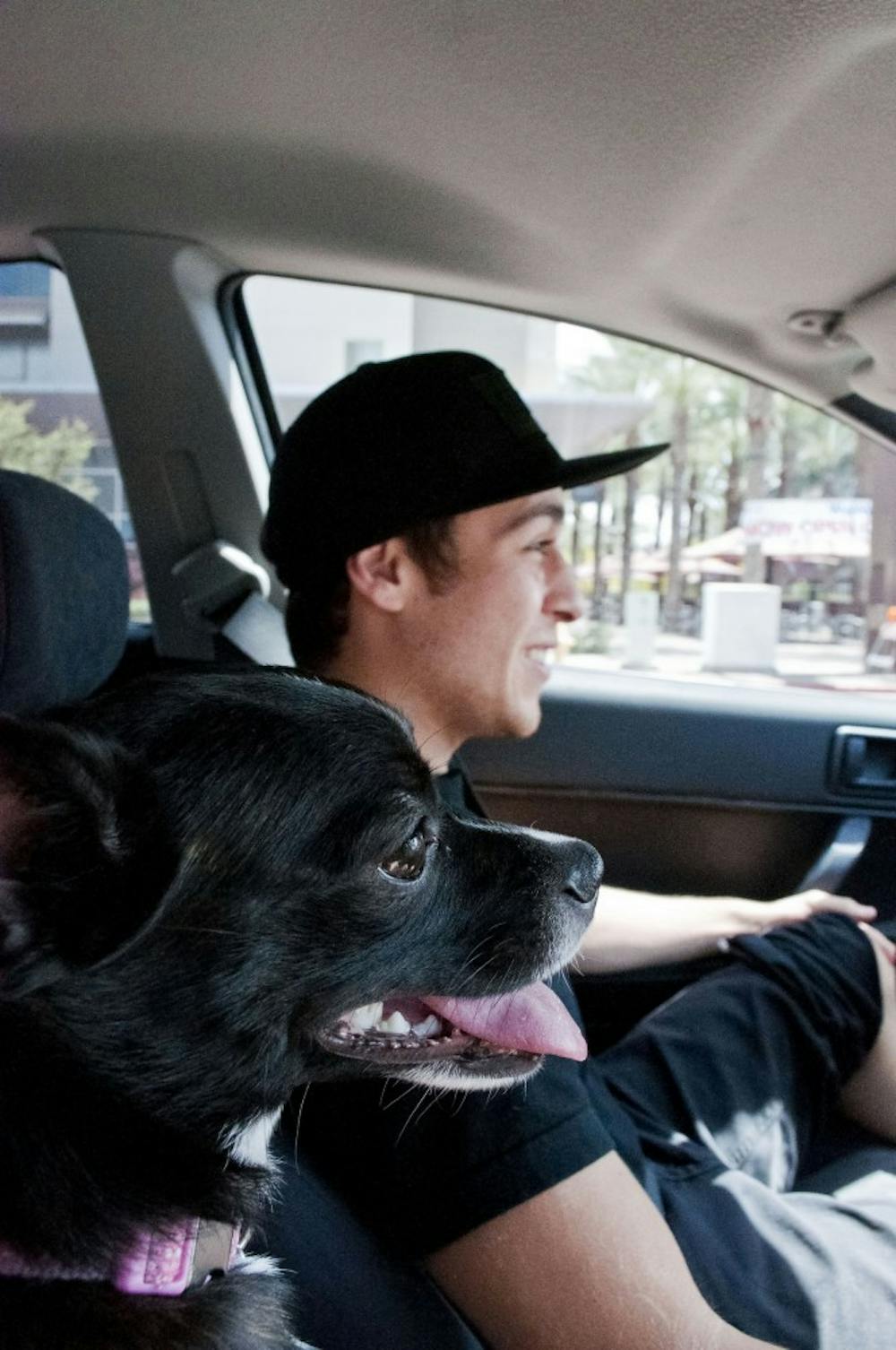 Business junior Josh Sinclair and Willow take a ride in Sinclair’s car in Tempe. At only 11 months Willow is well behaved in the car, according to Sinclair. (Photo by Katie Dunphy)
Business junior Josh Sinclair and Willow take a ride in Sinclair’s car in Tempe. At only 11 months Willow is well behaved in the car, according to Sinclair. (Photo by Katie Dunphy)The phrase 'man's best friend' might have to be changed to 'freshman's best friend' as the federal government recently said that universities are obligated to allow emotional support animals, mainly dogs, in on-campus residences.
According to a notice issued by the U.S. Department of Housing and Urban Development in late April, "Persons with disabilities may request a reasonable accommodation for any assistance animal, including an emotional support animal," in accordance with the Fair Housing Act, Section 504 of the Rehabilitation Act of 1973 and the Americans with Disabilities Act.
The notice states that a therapy animal must provide assistance or emotional support for a person with a physical or mental impairment that substantially limits one or more major life activities. It also states that it is applicable in "housing at places of education."
Unlike service animals, emotional support animals require no special training or certifications and may not be excluded based on size, breed or weight, according to the statement.
Diana Bejarano, director of strategic marketing and communication educational outreach and student services, said in an email that University officials, including the Disability Resource Center, review all housing accommodation requests on a case-by-case basis and strive to ensure student success.
"That includes accommodations for service and therapy animals in residence halls as determined appropriate by DRC," she said. "We have had a few students live on campus with service animals and therapy animals."
Theater sophomore Kyle Schmidt lived in the Arcadia complex on the Tempe campus and was "really bummed out" when he had to leave his Beagle and Yorkie behind at his Wisconsin home when he moved to Tempe.
"It would be awesome if I could have my dog on campus," he said. "It would relieve stress for me, and I might have to look into applying for a way to do that."
Dance education junior Jourdan Calvano spent the 2012-13 school year as a resident advisor at Hayden, and though no dogs lived in her building, she said she could see both the positives and negatives of the issue.
Calvano said dogs in dorms could present issues with people who are allergic to dogs and would be problem for potential roommates who do not like dogs.
"I definitely think that it could be a good thing for some people," she said. "I just think there would need to be strict rules, because it would get really difficult if everybody had dog."
Reach the reporter at npmendo@asu.edu or follow him on Twitter @NPMendoza




